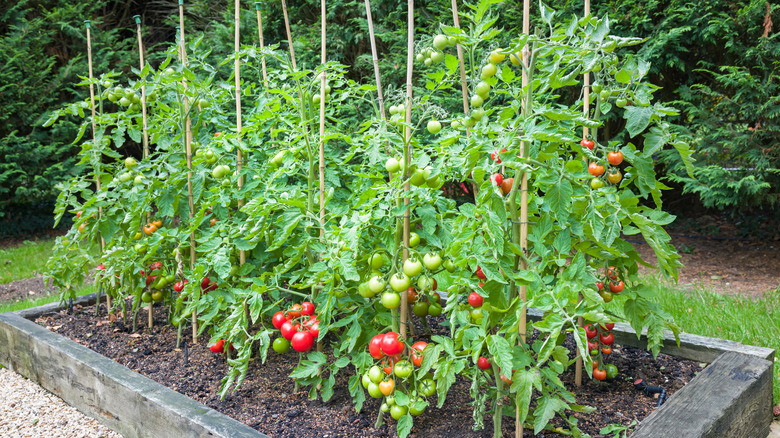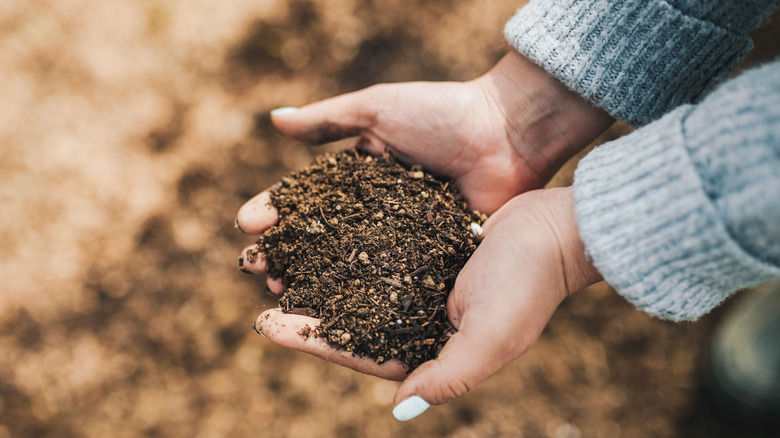Can TUMS Really Help My Tomato Plants Flourish?
If you're looking for a way to encourage a higher yield of plump tomatoes, you may consider using TUMS, the medicine that's been in your cupboard for years, as a supplement. TUMS tablets have a high calcium carbonate level, which is a valuable nutrient for tomato growth and development. The thought is that adding TUMS to the soil around your plants will encourage thriving and robust tomatoes. However, should you be adding this medicine to your garden? Before you consider this hack for improving tomato plant health, it helps to know a bit about what your tomatoes really need.
TUMS tablets help humans with heartburn and to fight back against an upset stomach. They work because they contain calcium carbonate, which is capable of neutralizing the acid that is produced in the stomach and digestive system when you're feeling ill. Calcium carbonate is a naturally-occurring mineral that is mined from pure limestone or marble. This helps to ensure a high level of purity in the medicine. Calcium is a necessary nutrient for plant life, including for the production of tomatoes. It helps create and maintain the cell walls and membranes within the plant's cells. Like all of the other nutrients a plant needs to grow and thrive, calcium must be present in your soil. However, it's not always necessary to add more calcium to what's already there to grow the best tomatoes in your garden.
The value of calcium to tomato plant health
Plants need calcium to grow. They use it as a way to improve disease resistance to things like blossom end rot and ensure proper water penetration into cells. It also aids in the activation of valuable enzymes and helps the plant maintain proper pH levels. Without calcium, your plants may struggle to survive. You'll know that your plant is lacking in calcium if you see limited growth, such as tomato plants that only get a foot tall instead of growing three times that amount. You may also notice signs of the leaves yellowing or becoming brittle and weak. A lack of enough calcium makes it impossible for the plant to develop fully, often causing it to wither and die instead of producing fruit.
If you see these signs or believe that the soil is lacking in calcium, it's possible to supplement that with the use of TUMS tablets. It's rather easy to use them for this purpose, too. If you're fertilizing seedlings, simply place the tablets in a plastic bag and then use a rolling pin to crush them. Once you do that, sprinkle the powder over the top of the soil. However, if the plant is already growing, add about 12 crushed tablets for every 2 cups of warm water. Add this mixture to a spray bottle and then use this once a week during the growing season on the roots and leaves.
Deciding whether to use TUMS for your tomato plants
While adding calcium to plants that lack access to the nutrient is important, the key here is that most tomato plants don't require more calcium than is already in the soil. Instead of having a calcium-specific problem, they likely have a mineral imbalance problem, which typically includes more than just calcium. TUMS can only help with the calcium addition, which means that this hack may not be very effective. Further, the issue may simply be that you're not watering your tomatoes correctly, as they need enough water to bring the calcium to every part of the plant.
Therefore, begin with getting a soil test. Best done at the start of the season before you plant anything, a soil test will tell you exactly which nutrients the soil needs. That way, you can purchase the proper fertilizers and nutrient additives to create the proper balance. These tests are helpful but have limitations, so many people still add some fertilizer to help support plant health. In situations where you believe calcium is the missing ingredient, you could use TUMS to supplement your plant's growth. However, to support your tomato plants properly, you'll likely need to use a lot of TUMS tablets to reach the necessary level of nutrition. Chances are that this process will be too tedious and costly to make it worth your time, so you may want to look for a mineral-enhancing fertilizer instead.


